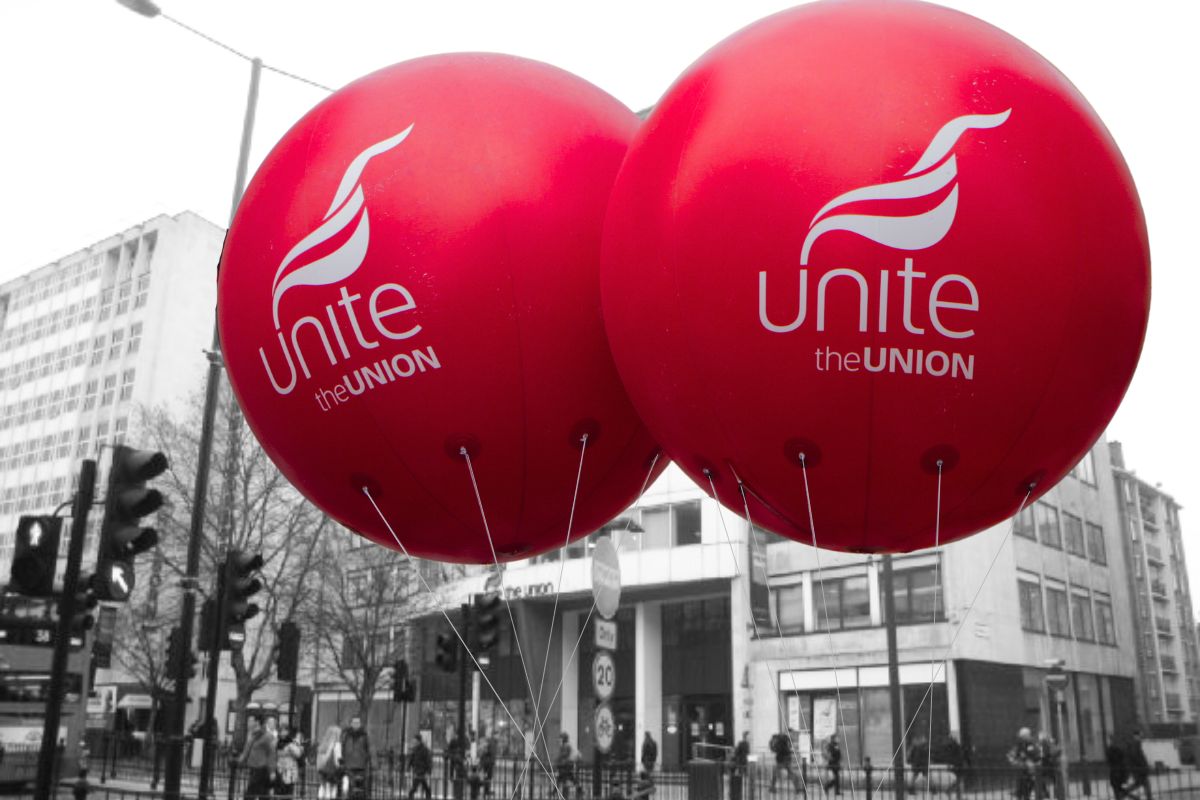Delegates from across the country are meeting this week for Unite the Union’s conferences, taking place in Brighton from 9-14 July.
These are the supreme decision-making bodies of the union, held every two years. The rules conference has been taking place over the last two days, and the policy conference is being held from 11-14 July.
These conferences come at a time of intensifying class struggle in Britain. New layers are increasingly being drawn into the struggle to defend their pay, jobs, and conditions from the bosses onslaught.
Take the example of the North Sea rig workers. Despite the eye-watering profits made by the fossil fuel monopolies, these offshore workers have not received anything approaching a real-terms pay increase.
This has been the final straw for hundreds of oil and gas workers, organised in Unite, who have taken strike action in response.
Elsewhere, on the basis of bold, determined action, rank-and-file Unite members have scored some impressive wins: from above-inflation pay deals secured by dockers in Liverpool; to an end to outsourcing for hospital staff in London.
The lesson from these disputes, and from other recent struggles, is clear: militancy pays.
Transformation
While these industrial battles rumble on down below, at the top of the union the tussle between the old United Left (UL) faction and the grouping around general secretary Sharon Graham continues to play out.
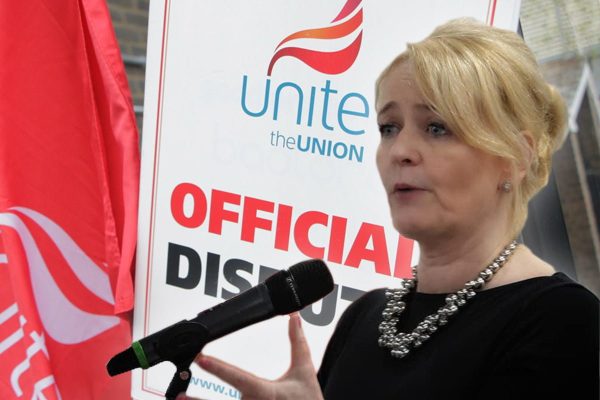
UL has become heavily bureaucratised over the years. In the minds of many grassroots members, this clique is associated with compromise, corruption, and dodgy deals.
Under Sharon Graham’s leadership, by contrast, a more militant tone has been struck, with noticeably higher levels of strike activity.
In turn, the balance of forces on the union’s executive council (EC) swung in favour of Graham’s supporters in the recent Unite EC elections. This reflects the mood amongst the membership: a desire to take on the bosses and Tories, and to fight for the real pay rises that workers need.
Work must now be done to ensure that this transformation inside the union is completed from top to bottom. Indeed, despite positive initial election results for Sharon Graham supporters, the old UL has managed to secure control of the EC through manoeuvres and shenanigans.
It is therefore welcome to see that those backing Graham – and wanting a more militant, democratic union – are now getting organised around the banner of ‘Workers Unite’.
Amongst other things, this new grouping stands for a union “that demands the removal of all anti-trade union laws”, and that will always support shop stewards, reps, and members in their struggles.
Workers Unite activists should now organise around a clear programme for transforming the union, so that it is fighting fit for its members.
This means democratising the union to ensure all Unite officials are elected; encouraging the maximum involvement of rank-and-file members in activity and decision-making; and ensuring that the best class fighters are leading the fightback, in workplaces and across the labour movement.
Affiliation
Against this backdrop of industrial and internal struggle, the political question of whether or not Unite should remain affiliated to the Labour Party dominated today’s proceedings at the rules conference.
Delegates voted overwhelmingly to reject disaffiliation, following the recommendation given by both Sharon Graham and the union’s EC.
Graham also stated, however, that she was putting Keir Starmer on notice. The Unite leader can clearly feel the discontent amongst rank-and-file union members towards Labour, given the party’s commitments to loyally serve big business and the bosses, and is forced to reflect this anger.
Unite Rules Conference votes overwhelmingly to stay affiliated to Labour but General Secretary Sharon Graham puts Keir Starmer on notice, he must deliver on jobs, pay and conditions if he wins power at the next election.
— Unite the union: join a union (@unitetheunion) July 10, 2023
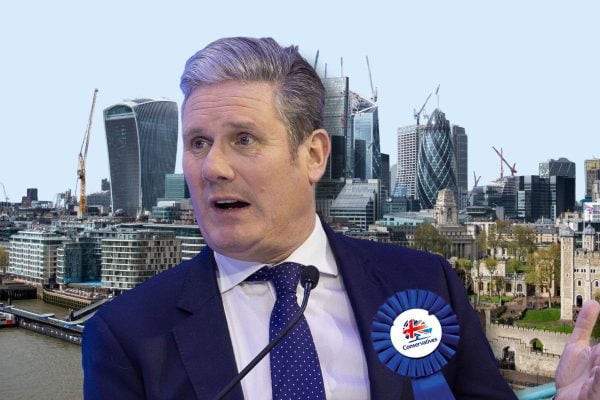
“This is the moment of maximum leverage for the union, where we can hold Labour to account,” Graham declared, referring to the fact that Starmer is on course to occupy Number 10.
“Labour must be Labour, and the union must push them into that position,” the Unite general secretary continued. “We must make them take different choices.”
These words of warning indicate a slight break from Graham’s previous tone. During her leadership campaign, for example, the Unite chief tapped into an anti-establishment mood within the union – distancing herself from her UL predecessors, and from the political squabbles inside the Labour Party, and promising to focus on workplaces over Westminster.
Now, by contrast, Graham is having to recognise that the unions cannot solely focus on industrial disputes, but also have a responsibility to fight for a real political alternative to the Tories.
Opportunities
The question of disaffiliation, in this respect, is largely a red herring; a distraction from addressing the real issues holding back the workers’ movement: the lack of militant leadership and bold socialist policies.
It is welcome, then, to hear Graham saying to conference that “there will be no blank cheques for Labour”; that “we will not make the same mistakes of the past”.
First, however, we must recognise and understand what exactly these “mistakes of the past” were, in order to truly learn from them and avoid repeating them.
The fact is, the big unions – including Unite – had a golden opportunity to transform the Labour Party during the Corbyn years. But they squandered this chance, allowing the right wing to regain control.
At every crucial juncture, conservative union leaders worked alongside Corbyn’s office to hold back radicalised Labour members: blocking moves for mandatory reselection; stomping out efforts to restore Clause IV; and later thwarting attempts to kick out Starmer himself.
In the end, their desire for ‘unity’ and class peace paved the way for the right wing’s return, and for the current situation, in which the left has been purged and sidelined. This is a product, fundamentally, of their woolly reformist outlook.
Leadership
Some on the left argue that what is needed now is a new workers’ party – one that the unions can affiliate to in place of Labour. This, the argument goes, would offer workers the genuine political representation that they need and deserve.
But again, this dodges the real problem: that of the leadership of the labour movement; the perspective that they hold; and the programme that they stand for.
The old UL leadership of Unite, like their counterparts in unions such as Unison and GMB today, had a conservative, reformist outlook.
This led them to consistently bend towards class collaboration – both on the political front, failing to drive out the Blairite saboteurs in the Labour Party; and on the industrial plane, seeking and accepting compromises with the bosses and the Tories.
If these same types remain in charge at the top of the labour movement, then the same mistakes and defeats will be repeated again and again.
Union leaders will accept rotten deals, as has happened with the recent NHS pay offer. And the left will capitulate in the face of the right wing’s attacks, as was seen at last year’s Unison conference.
On this basis, in other words, any new labour party would simply end up following the same dead-end path as the old one. As long as the movement is dominated by reformist leadership, the results will be identical, politically and industrially.
Programme
To break free of this Groundhog Day cycle, the trade union movement needs fighting leadership – armed with a bold socialist programme, and with the determination to wage these bitter battles to their necessary conclusion.
Such a programme should include calls for nationalisation of the major monopolies and banks; workers’ control over industry; and a sliding scale of wages, with pay increases automatically linked to prices.
This final demand, in particular, is vital in the current period, with workers sprinting just to keep pace with rising prices. Without this, the gains that we win today through struggle will be eroded away tomorrow through further inflation.
Socialist Appeal activists in Unite are therefore bringing a motion to this week’s policy conference that, if passed, would commit the union to fighting for a sliding scale of wages. We urge delegates to vote in support of this.
Unity
To win these demands for workers, coordinated and escalating action is needed. Unity is strength.
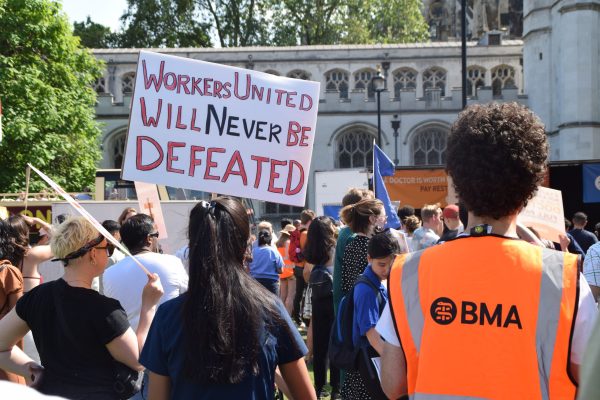
The bosses and the Tories are united in their attacks on workers, with the government seeking to push through further anti-union laws on behalf of the employers. Our class needs to show equal unity and resolve.
Unfortunately, so far, there has been very little linking-up between the unions, bar one-off ‘days of action’ here and there.
With its presence in hospitals and council services, and its overall size and weight within the trade union movement, Unite has a key role to play in pushing for mass coordinated action – particularly in regards to important ongoing struggles inside the NHS and local government.
This should include the establishment of cross-union workplace strike committees, in order to bring together rank-and-file trade unionists at a grassroots level; and working with other left-led unions at the top to coordinate walkouts, and to pressure the TUC into organising a mass campaign of militant action, based on protests and picket lines.
Such a campaign could not only force the Tories out of power, but could pose sharply the question of who really runs society: the bosses and bankers, or the working class. And this, ultimately, is the question that Unite and other unions must answer.
Socialism
At the end of the day, the problems facing workers are not caused simply by greedy bosses or rotten politicians – although there are clearly plenty enough of both!
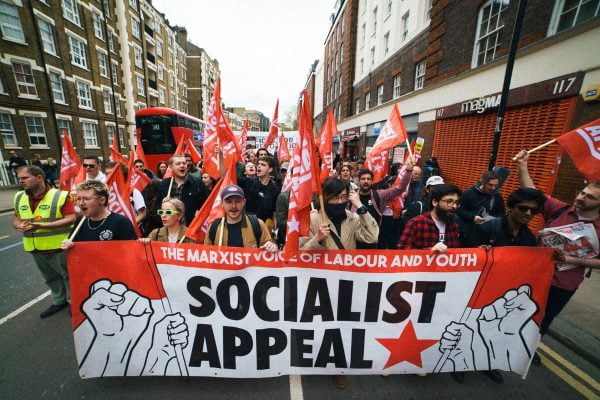
Instead, it is the crisis-ridden capitalist system that is ultimately responsible for the misery and toil that our class is forced to endure.
The fight for decent jobs, pay, and conditions cannot be separated from this. Whatever the capitalists and their representatives are forced to give with one hand, they will attempt to claw back with the other.
The struggle to complete the transformation of Unite – by arming our union with socialist policies and a militant leadership – is therefore an essential task for rank-and-file activists.
The ideas of Marxism, based on the lessons of the class struggle, provide us with the necessary perspectives; with a guide to action for the battles that lie ahead.
We call on all class fighters to get organised, and join us in building the revolutionary leadership that our movement needs – and deserves.

